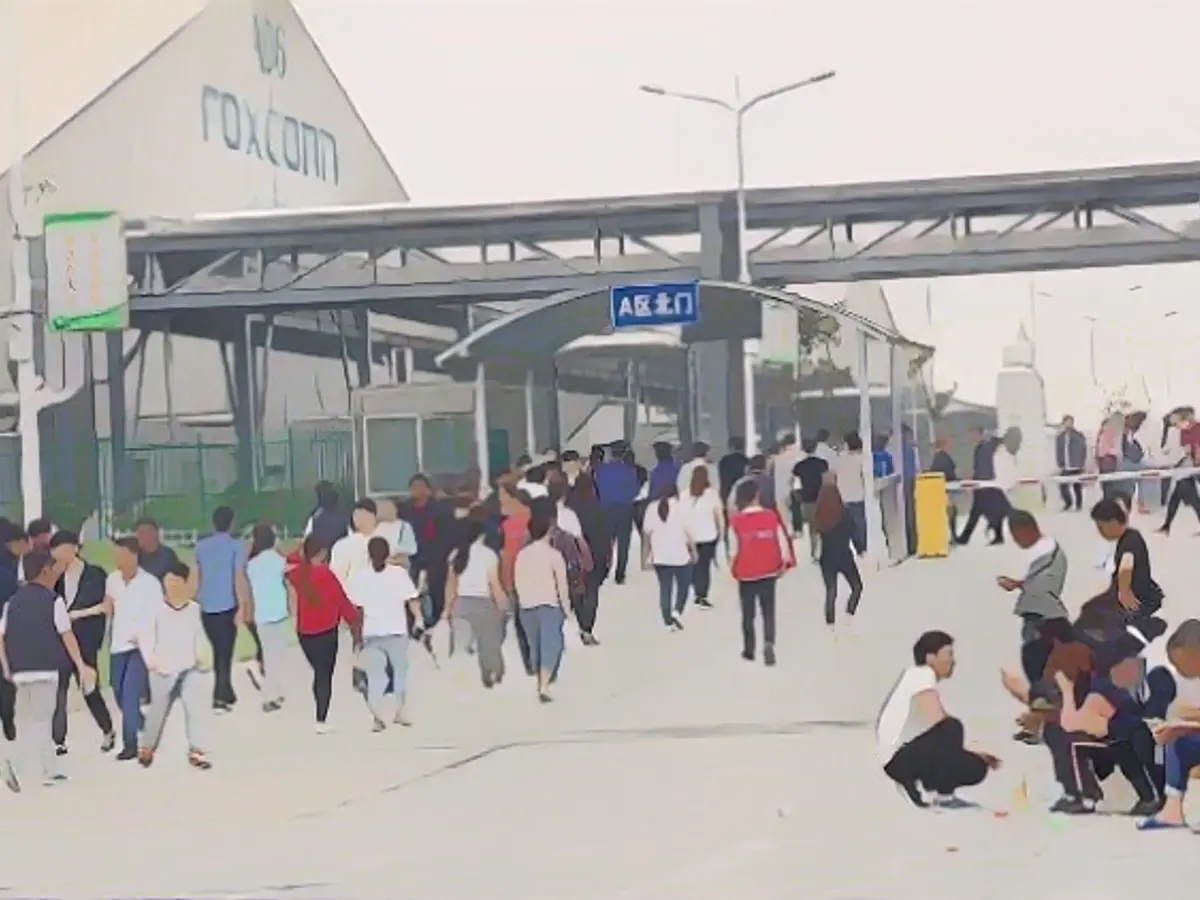How Apple is trying to exit China
There are signs of a turning point at the Californian cell phone manufacturer: In just a few years, a quarter of all iPhones will be manufactured in India. The global change of course should bring Apple more production security. But it is unlikely to be easy.
Trade war with the USA, technology blockade and possible invasion of Taiwan: in view of growing geopolitical tensions between the West and China, Apple is apparently increasingly looking for alternative production sites away from the People's Republic. As the "Wall Street Journal" (WSJ) reports, the cell phone giant and its most important supplier Foxconn are aiming to produce at least 50 million iPhones a year in India within the next two to three years. According to insiders, tens of millions more are to be added in the future. If the plans work out, a quarter of all iPhones would soon be manufactured in India.
Apple has already gained a foothold in India in recent years. These initial steps are said to have been encouraging, meaning that Apple is now creating the conditions for greater expansion, reports the WSJ, citing sources in the supply chains. Foxconn is currently building a plant north of Bangalore in the southern Indian state of Karnataka, which is due to go into operation in April and has a production capacity of 20 million cell phones. Plans for another mega-factory of the same size as the one in Karnataka are already in the pipeline, writes the newspaper.
Together with the expansion of the existing Foxconn main plant near Chennai and a factory recently purchased by the Indian industrial group Tata, it is becoming apparent that Apple is aiming to produce 50 to 60 million iPhones a year in India within the next two to three years, people directly familiar with the plans told the newspaper. According to data from market analysts, Apple sold 225 million iPhones worldwide last year. The company itself has not published sales figures for several years now.
Plan B for the big bang with Beijing
With the change of course, Apple apparently wants to reduce its massive dependence on China. This is because there is now open hostility between Beijing and Washington: the USA and the People's Republic are not only fighting for supremacy in Asia. Together with Japan and the Netherlands, the Biden administration has set up a technology blockade aimed at cutting off manufacturers in China from high-performance chips and AI technology.
A possible invasion of Taiwan in the coming years also hangs over the smouldering trade conflict. In the event of an open conflict, Apple would lose almost all production capacity for its most important product. This is why the Californian giant is increasingly trying to find a foothold elsewhere. In addition, Apple is no longer welcome in China: it was only in the fall that the Chinese government - probably in retaliation for Washington's measures - banned its officials from using iPhones.
De-risking China remains laborious
Not only iPhone manufacturer Foxconn, but also other Apple suppliers are expanding their network in India, making the country increasingly attractive as a competitive location for the Californian internet giant. Japanese battery manufacturer TDK, for example, announced a new plant just this week to supply assembled iPhones in India. According to the newspaper, hourly wages are now also below the Chinese level.
However, Apple does not have the same free rein in democratic India as it does in autocratic China. This is because there are real trade unions on the subcontinent. For months, according to reports in the Indian media, Apple had been lobbying local politicians behind the scenes to soften the strict working time rules in order to bring shift lengths up to the level of Chinese iPhone factories. In the state of Tamil Nadu, where Foxconn's main plant near Chennai is located, they were briefly successful. But in the end, the head of the state buckled under pressure from activists - and withdrew permission for the 12-hour working day just a few weeks after it had been granted.
In the end, however, China is likely to remain Apple's most important production country despite the relocation plans due to its sheer weight. The mega plants there, such as in Zhengzhou, are too well established and tried and tested: at peak times, almost 300,000 Foxconn employees live and work in the "iPhone city". The complex is surrounded by an extensive network of suppliers who manufacture the parts required for the cell phones. The critical raw materials needed for production are also available locally. A large proportion of all this would first have to be imported to India. But as the Chinese saying goes: Every journey begins with the first step.
Read also:
- Why there is still no EU funding for green Saar steel
- 3 billion Saar Fund is unconstitutional
- Politicians at a loss after shock news
- Court of Auditors criticizes the state government's debt plan
Apple's plans to manufacture at least 50 million iPhones annually in India within the next few years, as reported by the "Wall Street Journal," aim to reduce its reliance on China due to growing geopolitical tensions and potential production disruptions. Although hourly wages are lower in India, Apple faces challenges in de-risking its production in democratic India compared to autocratic China, as highlighted by labor union pressures and stricter working time regulations.
Source: www.ntv.de








